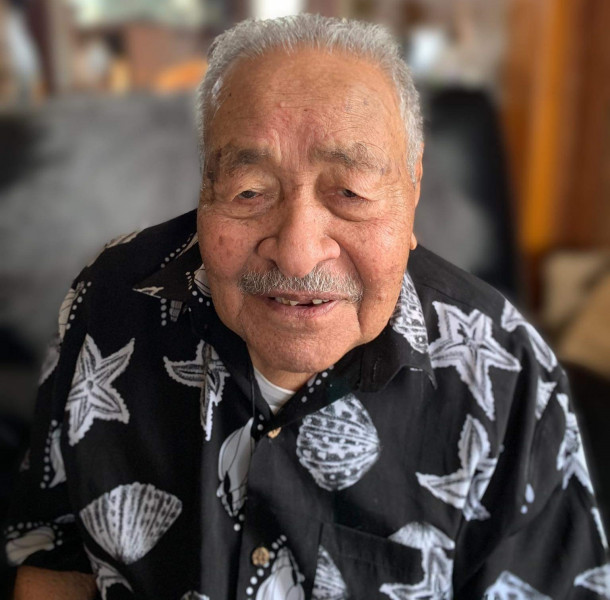Matua's passion to preserve the Fiji language
Matua's passion to preserve the Fiji language

Being recognised as the Fijian Language Champion in the Matua (elder) category has not only filled Joseph Davis (pictured) with appreciation and pride but also provided a platform to further share his passion of the Fijian language and culture to all.
“I hope this achievement inspires everyone I have mentored to continue sharing our Fijian language and culture,” the 2021 award winner says.
This year is the first time Language Champions are being honoured in the Ministry for Pacific Peoples (MPP) Pacific Language Weeks series.
Joseph received his honour at the conclusion of Macawa Ni Vosa Vakaviti - Fijian Language Week in October.
Born in 1933 in a small rural village in Vanua Levu, Fiji to a European father, and Fijian mother, Joseph was raised by his maternal grandmother at Qamea.
“I was blessed to learn about my heritage and customary Fijian traditions from my grandmother and elders while growing up in the islands,” Joseph explains.
“Like many Pacific people, I migrated to Aotearoa in 1975 with dreams to pursue a better life and provide better opportunities for my family and I.”
The proud father of 12 children, who also has 26 grandchildren and 17 great-grandchildren, says he cherishes all he has learnt throughout his years and has dedicated his life to passing on Fijian traditions and values to his children and grandchildren.
Joseph’s advocacy for the Fijian culture and language extends to his community and over the past four decades, he has fulfilled various leadership roles in Auckland.
With the intention to successfully achieve the preservation and maintenance of Fijian language and culture, much of his work has strengthened the community’s resilience and highlighted the importance of working together as when faced with challenges or barriers presented within society, he says.
In the latter part of his community work, Joseph served as the Chairperson for the Soqosoqo ni Cakaudrove organisation in Auckland, from 2010 to 2017.
Following his retirement, he remains an active Board member of the organisation, as he feels his duty to pass on his cultural knowledge to the younger generations is not over yet.
He continues to support the community as a Cultural Advisor and Mentor for members of Soqosoqo, providing guidance or advice regarding cultural and/or traditional practices.
Joseph says he is a firm believer successful language and cultural maintenance starts at home.
“For me, the strength of being comfortable in who you are is being proud of where you come from, and that is a legacy I strive to instil in the families of the Fijian community here in Auckland.
“Through my work with the Soqosoqo ni Cakaudrove in Auckland, I have been able to assist in the creation of workshops and events encouraging the involvement of youth and showcasing Fijian culture and traditions in positive ways for all to see.”
“A big part of our aim is to also teach families the correct tools and mindsets that will help execute cultural learning at home because without positive integration of Fijian language and traditions in the homes of diasporic communities, it will be difficult to preserve our culture in the future,” he says.
Aotearoa is home to many people of the Pacific diaspora, and for this reason, Joseph thinks it is important to maintain links to homelands while people are abroad.
“Encouraging Pacific youth to not only learn, but to preserve our Pacific languages and cultures is vital in ensuring our ancestors do not get forgotten.”
“We need to teach them the richness of our heritage and the importance of sustaining a strong sense of community as Pacific people living in Aotearoa – which I believe is essential for good health and wellbeing of Pacific people.”
In the past few years, communities and businesses around Aotearoa have taken steps further to promote Pacific languages in everyday life, especially during Pacific Language Weeks.
Joseph says integrating these events, activities, and features in society year-round in Aotearoa would breakdown the sense of otherness Pacific people may feel in Aotearoa.
“By normalising the expression and sharing of Pacific languages in mainstream media, I think it will break down any perception of exclusivity surrounding such languages and encourage further usage in our wider communities.”
